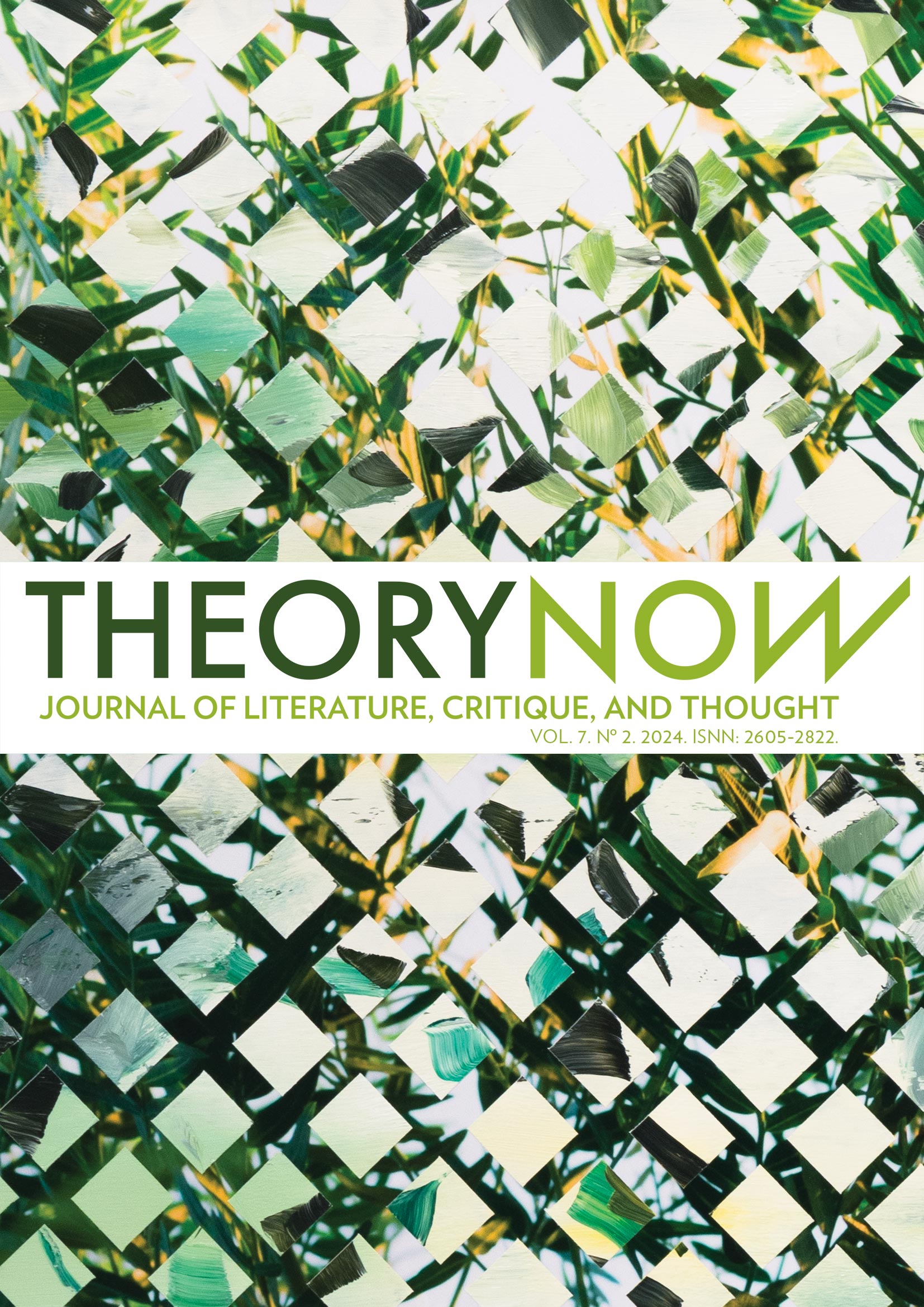Ecocritism in the Twenty-first Century (and the Centuries to Come)
Plants, Animals, Futures
DOI:
https://doi.org/10.30827/tn.v7i2.30998Keywords:
Ecocriticism, 21st Century, Anthropocene, Plants, Animals, FuturiblesAbstract
Sometimes the sciences create their own object of study, as was the case with literariness, the distinctive features of the literary object to which the Russian formalists paid attention, as was the case with the phoneme, a structuralist concept of sound without physical existence and a fundamental abstraction for analysing the factual sonorities to which phonetics pays attention and for better understanding and learning of the orality of languages. Sometimes the sciences do not invent their fields of enquiry, but rather adopt a novel perspective on an already well-established subject, capable of illuminating and renewing it as a scientifically relevant entity. This is the case of ecocriticism, which since its beginnings in the last decade of the 20th century has managed to bring to the forefront of the Humanities in the 21st century the academic relevance of introducing the ecological perspective into the reading of literary texts, works of art and, in general, into the disciplines of knowledge, whatever they may be, from History to Economics, from Law to Economics, from Medicine, Engineering, Cybernetics and Architecture to Theology and Philosophy, Sociology and Agronomy. In the age of the Anthropocene, the ecological perspective is essential in the study, analysis and interpretation of all manifestations of culture and, precisely because it is so essential to a high degree, it invites us to make the limits of the disciplines it affects porous and to open up new spaces for political action and scientific and artistic enquiry.
Downloads
References
Acot, Pascal. Historia de la ecología. Traducido por Lourdes Prieto del Pozo, Madrid, Taurus, 1990.
Altieri, Miguel. “Buscando soluciones a la crisis planetaria ambiental. Un llamado a la transformación individual y colectiva”. Foro, vol. 8, no. 2, 2024, pp. 18-26.
Chaplin, Charles, director. Tiempos modernos. United Artists, 1936.
Coccia, Emanuele. La vie des plantes: Une métaphysique du mélange. Paris, Payot & Rivages, 2016.
Deleuze, Gilles y Félix Guattari. Mille plateaux: Capitalisme et schizophrénie. Paris, Les Éditions de Minuit, 1980.
Derrida, Jacques. L’animal que donc je suis. Paris, Galilée, 2006.
Francisco. “‘Laudato Si’. Sobre el cuidado de la casa común”. La Santa Sede, 24 Mayo 2015, www.vatican.va/content/francesco/es/encyclicals/documents/papa-francesco_20150524_enciclica-laudato-si.html 2 Mayo 2024.
Mancuso, Stefano y Alessandra Viola. Sensibilidad e inteligencia en el mundo vegetal. Traducido por David Paradela López, Barcelona, Galaxia Gutenberg, 2015.
Marrero Henríquez, José Manuel. “Ecocriticism of the Anthropocene and the Poetics of Breathing”. Hispanic Ecocriticism, José Manuel Marrero Henríquez (ed.), Berlin, Peter Lang, 2019, pp. 19-48.
____. “Filología verde y poética de la respiración para un mundo contaminado”. Actio Nova: Revista de Teoría de la Literatura y Literatura Comparada, no. 5, 2021, pp. 417-435.
____. “Ecopoetics”. Spanish Environmental Cultural Studies, Luis I. Prádanos (ed.), New York, Tamesis, 2023, pp. 215-222.
Marx, Karl. “Manuscritos económicos y filosóficos”. 1844. Archivo Marx-Engels, www.marxists.org/espanol/m-e/1840s/manuscritos/ 2 Mayo 2024.
Nascimento, Evando. El pensamiento vegetal: La literatura y las plantas. Traducido por Raúl Rodríguez Freire, Santiago de Chile, Mímesis, 2023.
Ortega Cantero, Nicolás. “La lectura del paisaje en la geografía moderna”. Lecturas del paisaje. Pasajes y paisajes: Espacios de vida, espacios de cultura, José Manuel Marrero Henríquez (ed.), Las Palmas de Gran Canaria, Servicio de Publicaciones de la Universidad de Las Palmas de Gran Canaria, 2009, pp. 33-50.
Skowronski, Ellen. “Words that Breathe”. Ecozon@. European Journal of Literature, Culture and Environment, vol. 6, no. 1, 2015, pp. 107-117.
Toro, Javier. “El movimiento anticapitalista: una charla con Simon Tormey”. Foro, vol. 3, no. 2, 2019, pp. 8-16.
Wagensberg, Jorge. “Belleza e inteligibilidad”. Fernando Casás: Arqueología del no-lugar, Mina Marx y Manuel Sevilla (eds.), Madrid, Círculo de Bellas Artes, 2004, pp. 25-38.
Wordsworth, William. “The Tables Turned”. 1798. Poetry Foundation, https://www.poetryfoundation.org/poems/45557/the-tables-turned 10 Jun 2024.
Published
How to Cite
Issue
Section
License
Theory Now. Journal of Literature, Critique, and Thought is an immediate open-access publication which is available at no cost for readers and authors alike. Authors are not charged any kind of fee for the editorial processing of their articles. Reading, downloading, copying, distributing, printing, searching, linking or reusing all published articles for non-commercial uses is allowed on the condition of citing the author, the journal and the editing body. All intellectual material published in this journal is protected under a Creative Commons Attribution-NonCommercial 3.0 Spain license.
Dissemination of the articles in social (Facebook, Twitter, Linkedin, etc.) and scientific networks (ResearchGate, Academia.edu, etc.), public repositories at universities and other institutions, blogs, personal or institutional websites, Google Scholar, ORCID, ResearchID, ScopusID, etc. is strongly encouraged. In all cases, the intellectual property of the articles and any possible monetary profits derived from them belong exclusively to the authors.













